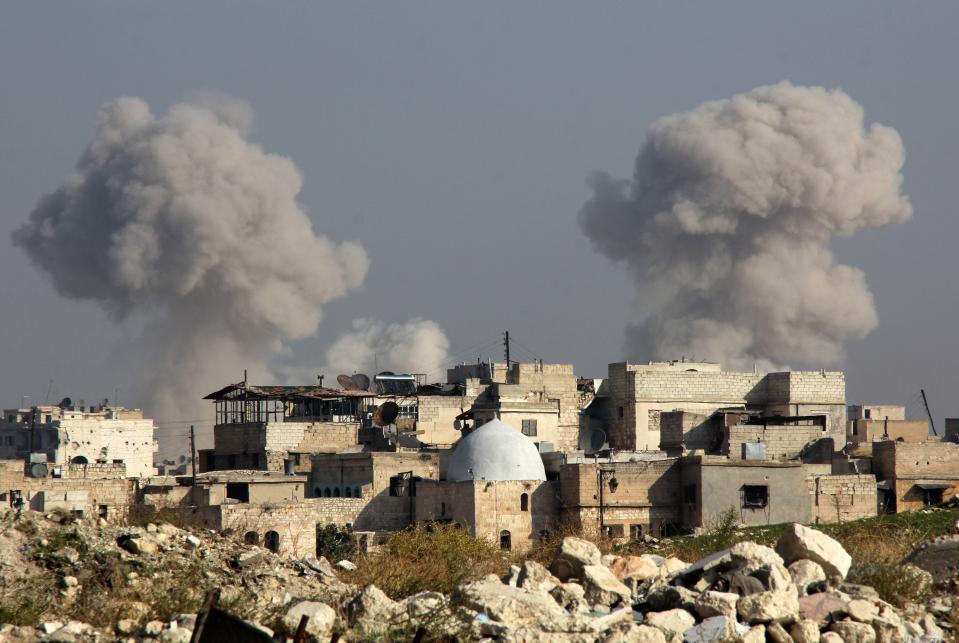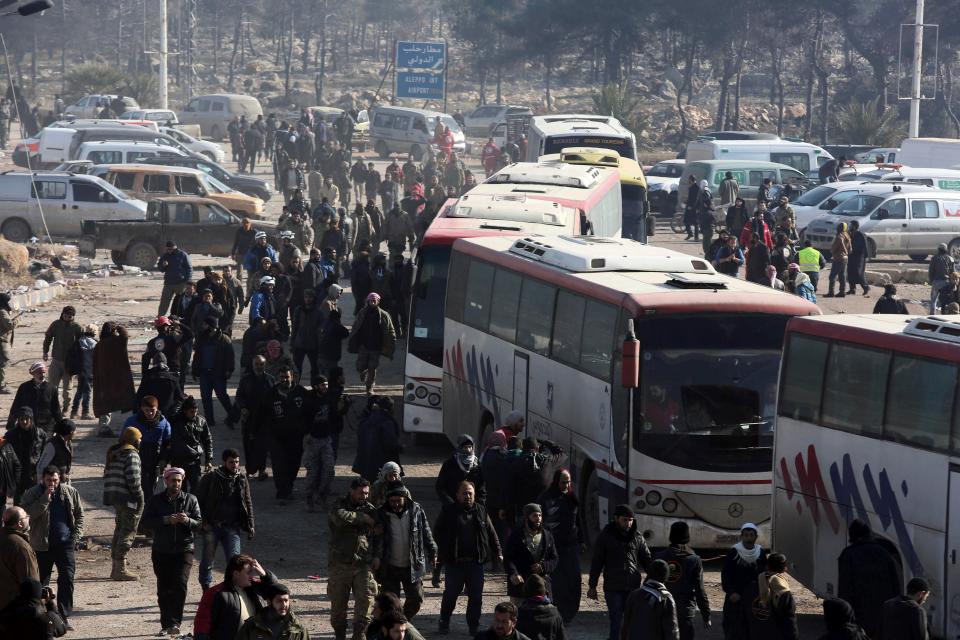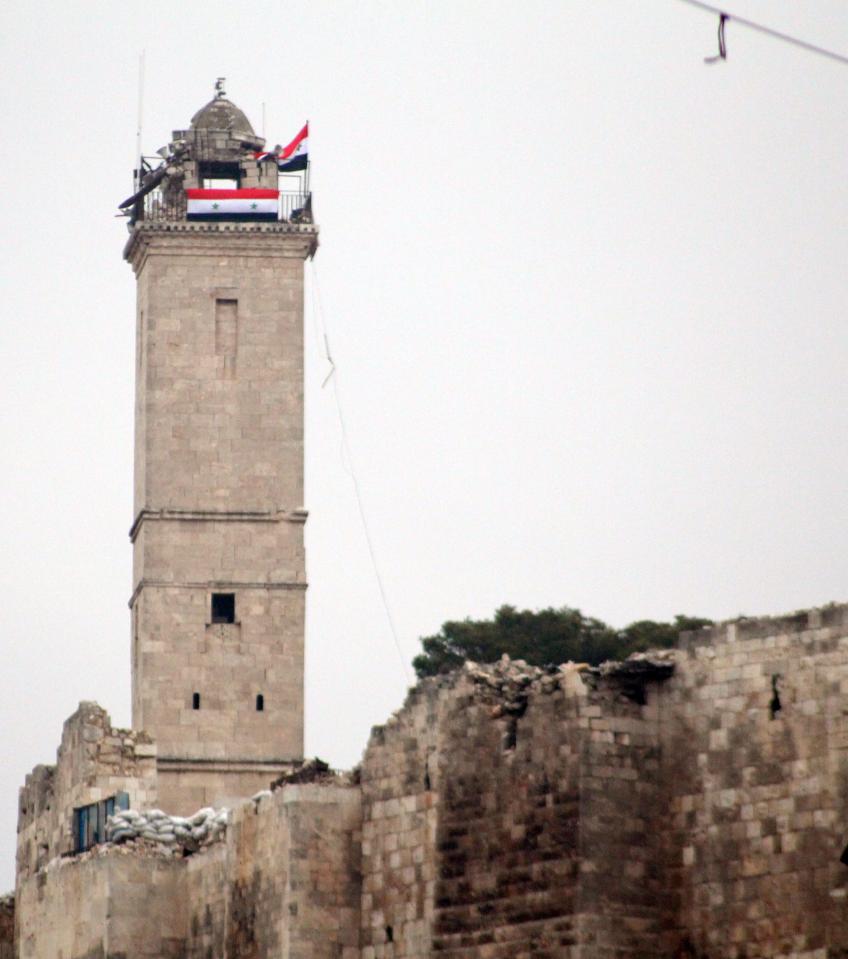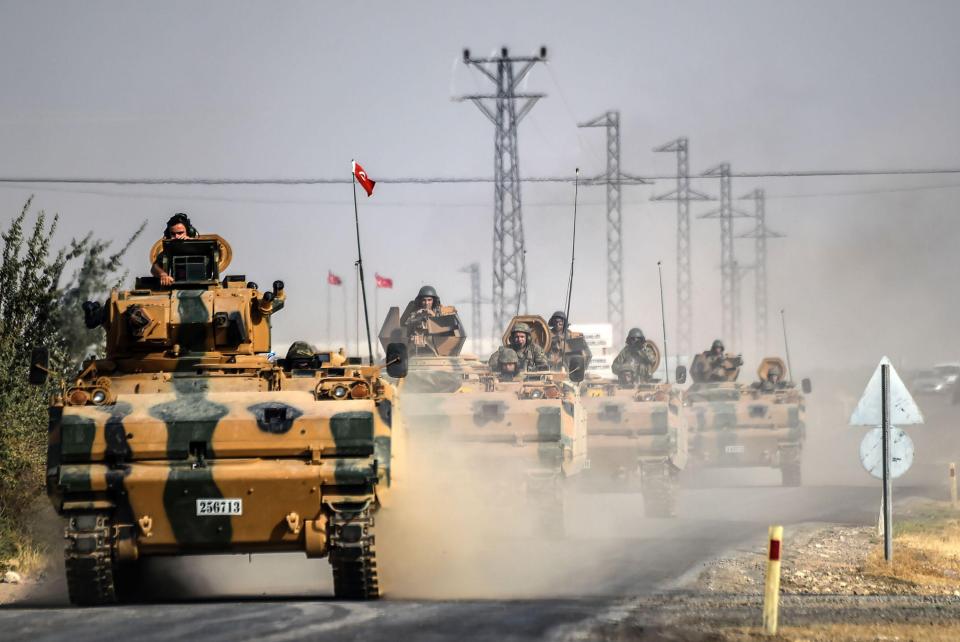What do we know about the Syria ceasefire, how will it affect Aleppo and does it mean the Syrian civil war is over?
Vladimir Putin announces truce deal agreed between Syrian government and various rebel groups fighting against it
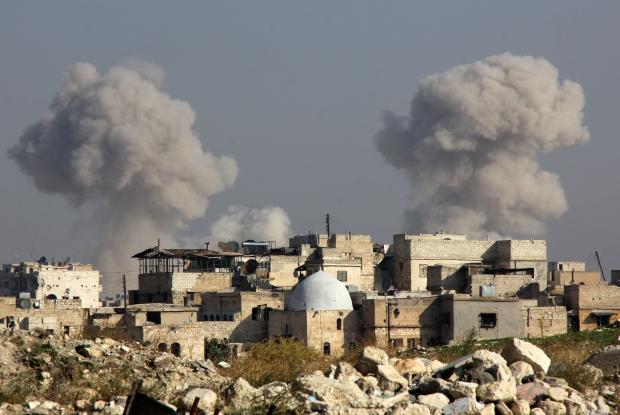
FOR the first time in a long while, the world has been given cause for cautious optimism over the catastrophic war in Syria.
Vladimir Putin has announced that a nation-wide ceasefire deal has been agreed between the government and rebel forces across the country.
Turkey’s foreign ministry also confirmed the news that warring parties had agreed to cease – or at least pause – hostilities.
But several previous attempts have been made to resolve the conflict peacefully.
There have been two other ceasefires this year alone, both mediated by Russia and the US.
None have succeeded in stopping the slaughter, with repeated breaches causing the truces to break down as all sides blamed each other.
So what do we know about the latest ceasefire? How will it affect the war-torn city of Aleppo?
And does this mean the Syrian civil war is finally at an end?
What do we know about the Syria ceasefire?
The Syrian ceasefire is an agreement between the government of Bashar al-Assad and opposition groups fighting to topple his regime.
The parties signed up to the deal have agreed to stop fighting from midnight tonight.
Syrian state news said the army had declared “a comprehensive nationwide cessation of hostilities as of midnight”.
Turkey's foreign ministry said in a statement: "With this agreement, parties have agreed to cease all armed attacks, including aerial, and have promised not to expand the areas they control against each other."
Syrian state news said the deal followed “successes achieved by the armed forces” – an apparent reference to the recent seizure of rebel-held eastern Aleppo by forces backing the president.
A hotline with Russia and Turkey has also been set up to monitor violations and both sides have committed to setting up humanitarian corridors.
And all signatories have committed to attending a round of talks planned for Astana, Kazakhstan, with the aim of ending the conflict permanently.
Rebel groups with some 62,000 fighters have signed up to the agreement.
But the devil is in the detail as not all groups involved in Syria’s civil war are included in the ceasefire deal.
Turkey’s foreign ministry said the truce would not include groups considered to be terrorists – but there has been some confusion about which these are.
All sides agree that ISIS will be excluded from the deal, with the terror group clearly having no interest in peace or negotiations.
But there have been conflicting messages about the group formerly known as the Al-Nusra Front, which used to be affiliated to Al Qaeda.
The government said it was not included in the deal, while some rebel groups said the hardcore Islamists were part of the agreement.
And the Kurdish YPG militia – which has been bravely fighting ISIS in northern Syria – is also crucially excluded.
Turkey considers the group to be a terrorist organisation and fears a de facto Kurdish state on its southern border would encourage Kurdish separatists domestically.
How will the ceasefire affect Aleppo?
All sides agreed to refrain from trying to take territory from each other.
The ceasefire – if it is adhered to – will therefore protect the status quo in Aleppo.
After the Syrian government’s recent successful reconquest of the city, this means it will remain in government hands.
Does the deal mean the Syrian civil war is over?
The agreement does not mean the war is over, as several groups are not included in the ceasefire.
ISIS, the Kurds and possibly the former Al-Nusra front are all expected to keep fighting the government and each other.
The agreement is also for a truce – a pause in hostilities – not a permanent end to the fighting.
But the subsequent talks planned between the signatories to the ceasefire aims to deliver a longer-term solution that could see rebels lay down their arms for good.
READ MORE
Why is Russia bombing Aleppo and which side is winning the battle for the Syrian city?


